FBI agent and one of the world’s top hostage negotiators Chris Voss, author of the book most recommended to me, Never Split The Difference, officially has released my favourite new MasterClass: The Art of Negotiation.
In an electrifying, tense, cinematic opening, Voss tells us:
There are human nature rules that apply to everyone. It doesn’t matter if you’re a terrorist or a businessman.
Voss then immediately smashes and dispels the myths of negotiation, before preparing us for one of the most mesmerising MasterClasses to date.
You’re going to learn from the FBI hostage negotiator who successfully got inside Al Qaeda’s head everything from bargaining to reading body language and speech patterns to the neuroscience that bends people’s reality.
You’re going to learn how to achieve your goals through collaboration and tactical empathy that leads to trust-based influence.
And having binged the whole MasterClass start to finish, rewatching several modules repeatedly and showing them to friends, I can attest that you learn a ton.
Chris Voss Teaches the Art of Negotiation MasterClass Review
You’re in negotiations all day long. If you want somebody to say yes to anything, you’re in a negotiation. If somebody’s trying to get you to say yes to something, you’re in a negotiation. If you say I want, or you think I need, you’re in a negotiation. You’re probably in three to seven negotiations every single day.
All of the negotiation principles Chris Voss outlines in this MasterClass are underpinned by the theory of tactical empathy.
Tactical empathy isn’t about agreeing with someone. It’s about seeing things from their perspective and understanding their rules.
Right off the bat, Voss dives into a deep analysis of the Jill Carroll kidnapping by Al Qaeda.
Through a staggering level of analysis of the terrorist’s video broadcast, how they stand, how they compose the shot, everything, Voss is able to get inside their minds and figure out who they really want to speak to and what they really want.
Voss breaks down how the way they orchestrated the kidnapping and filming shows their desires to be taken seriously as a legitimate authority that can pass sentence on somebody – so they needed to approach things from that level and turn their own rules against them.
The fact that her hair was uncovered went against their own rules, so they pointed out to various media outlets that the kidnappers were the ones who disrespected her.
Then they coached Jill’s father to go on the news and avoid the trigger words that the kidnappers predicted he would say in advance (e.g. “She’s innocent”). As soon as he says his daughter is innocent, whether it’s true or not, he feeds into their justification for killing her.
Instead, the father takes a completely different stance (“she’s not your enemy”). Due to their culture, honour flows from the father. The terrorists saw her father, saw him to be an honourable man, and this helped lead to her release.
So much fascinating insight into psychology happens in the first five minutes of the Chris Voss MasterClass alone!
We start off learning about mirroring, one of the main tools in the negotiator’s arsenal.
Mirroring is what leads to the other side presenting you with your own deal but thinking it was their idea. It’s the art of letting the other side have your way and is critical as an information gathering tool.
Mirroring is what makes the other person feel listened to. It connects their thoughts in their head. And sends a message that you’ve heard everything they said, but it’s not enough and you still don’t get it. So when they explain further, adding more words, their terms will change.
Mirroring also builds rapport, because people love to feel heard. Interesting people are interested. So if you mirror, you’ll be ridiculously interesting to other people.
Voss shows you exactly what to say in order to mirror effectively and also how to say it. Tone of voice is everything and you’ll be able to pull off an effective range of persuasive voice styles thanks to this MasterClass.
I loved how Voss breaks mirroring down specifically in a way that will help you counter aggressive people and particularly in a sales context when coming up against customer objections.
Voss also breaks down the nuances of using silence and how to use silence to your power after a great mirror and inquisitive tone.
The module on labelling was fascinating.
This technique is backed by neuroscience and Voss warns not to be fooled by their simplicity as it’s the simplicity that gives them elegance and Macgyver-like versatility.
Coming out of hostage negotiation, Voss thought labelling was one of the least important negotiation skills on the list. But going into business negotiation, he discovered it might just be the most important skill.
You learn exactly how to label in a way that feels instinctive and deactivates negativity, triggering contemplation in your counterpart’s head.
There’s a lot of nuance to labelling. Voss teaches you how not to label, but also goes through the various responses you might get from someone in response to a label. You’ll see what response means you’re on the right track and whether you need more labels and what kind.
What’s really interesting in this module is the perspective I gained from a customer service point of view. Not only does labelling a negative deactivate it, but labelling a positive reinforces it. Once you know this, you’ll see this everywhere – and be able to use it to your advantage.
There’s even a mirroring and labelling mock negotiation scenario, so you can see what this looks like played out.
This was electrifying to watch.
You can see how these techniques mean you can share absolutely zero common ground with someone and yet still get them comfortable enough to talk about the deepest parts of themselves.
“Mastering Delivery” was another phenomenal module.
Voss begins by talking about mirror neurons and how, if you can see or hear him, he can hit those neurons in your brain and manipulate you into an emotion.
He can make you angry by his tone of voice, he can also calm you down and he even reveals his hostage negotiation voice and the voices you can use with anxious individuals in commission-driven businesses or specific industries like real estate.
You get to hear Chris Voss analysing his taped calls with hostage-takers.
You’ll really love Chris Voss breaking down for the first time his tape recordings of his phone calls with the Chase Manhattan Bank kidnappers in 1993.
This section is more gripping than a movie, feeling like a real Dog Day Afternoon.
This 16-minute module was so good that I watched in three times.
I shared it with my brother and father, and will share it with many more people.
There’s a nice added bonus in that the hostage negotiation calls are all extrapolated into business scenarios.
In the module on body language, the 7/38/55-rule was particularly fascinating to me.
Voss talks about relative percentages (e.g. tonality is 5x more important than words spoken) and uses this as a springboard into an immensely practical, applicable lesson on effective communication and persuasion, beginning with how to establish a baseline so you can get beneath the surface.
This is all about becoming a human lie detector by using techniques like the Pinocchio Effect.
The secret in gaining the upper hand in a negotiation is giving the other person the illusion of control.
One of the most popular modules in the Chris Voss MasterClass is called “Creating the Illusion of Control” and Voss takes you through how to calibrate everything from what you say to how you say it to make the person you’re negotiating with think they’re in the driving seat – when really you’re the one in charge.
You see how a question like “how do we know the hostages are still alive?” translates into business deals at the negotiations table.
- If you’re considering getting the Chris Voss MasterClass, make sure you check out the All Access Pass first as it lets you view every single class in the catalogue for the cost of just two classes (plus you get a free pass to gift to a friend).
I love how everything Chris Voss has learnt in hostage negotiation can be extrapolated to everyday life.
One example being how a technique known as the Accusation Audit will allow you to have late check-out times at hotel every single time or will successfully prevent your teenage daughter from wanting to stay over her boyfriends house without hating you.
One of the most eye-opening modules for me was the one on the power of no.
I’ve read a lot about body language, non-verbal communication, and persuasion, but these books, particularly the ones aimed at getting you to be a better salesmen, focus on the power of making the other person say yes.
But Voss prefers to get them to say no, and finds the results are better that way.
What follows in this module was a complete paradigm shift for me, complete with no-seeking questions you can substitute your typical yes-seeking questions for to better effect.
Another module that was a personal favourite of mine was the one on bending reality.
I’ve been interested in loss aversion for years now, so it was great to go deep into the ways you can use this psychological phenomenon to distort people’s perceptions to your own benefit.
This module is all about how to frame your case in a compelling way based on your counterparts key emotional drivers.
If I had to pick a module that would be easily worth the price of admission to the masterclass alone, it would be the mock salary negotiation.
I’m convinced that this will be quite dramatically perspective changing and enhancing for practically every person who takes this masterclass.
What’s Chris Voss like as a teacher?
As many of the other MasterClass students pointed out, Chris should be an actor.
The role play hostage situations involving him were tense and impossible to tear your eyes away from because he was so believable.
In addition to that, Chris is incredibly intelligent, packages his information superbly in a way that is both compelling and easy to digest (despite being complicated psychological principles) and he is a joy to watch.
Chris is also extremely cool.
Chris is like Clint Eastwood and Liam Neeson rolled into one.
He’s cool, but also incredibly moving, real, down-to-earth, and his empathy and compassion leaps off the screen.
There’s even a moment at the end of the class where I found myself choking up.
This is the quickest I’ve ever finished a MasterClass.
I binged it start to finish immediately after its release, and it’s certainly one of my favourites out of a catalogue of mesmerising MasterClasses.
Verdict on Chris Voss Teaches the Art of Negotiation MasterClass: Is it worth it?
Whether you’re a parent that wants a good relationship with your kids where you teach them to think and keep them safe…
Or whether you feel under-appreciated in your career and desperately need to negotiate a salary that matches your worth…
Or perhaps you just want to learn the fascinating intricacies of human psychology, persuasion, and influence in an entertaining manner.
Whatever the case, you will love the Chris Voss Teaches the Art of Negotiation MasterClass.
I recommend it hands-down. If the All Access Pass wasn’t already a no-brainer bargain, it certainly is now.
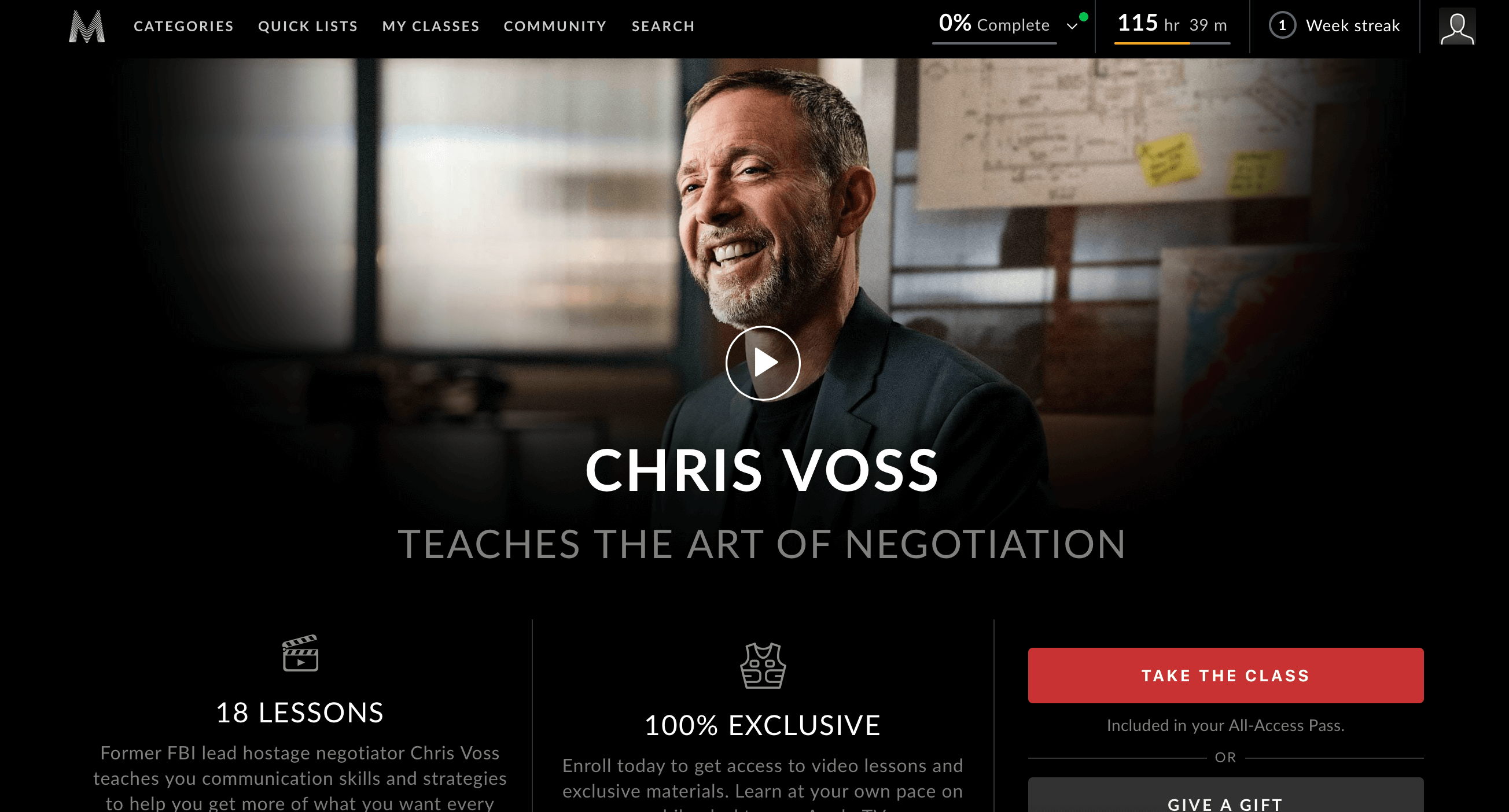
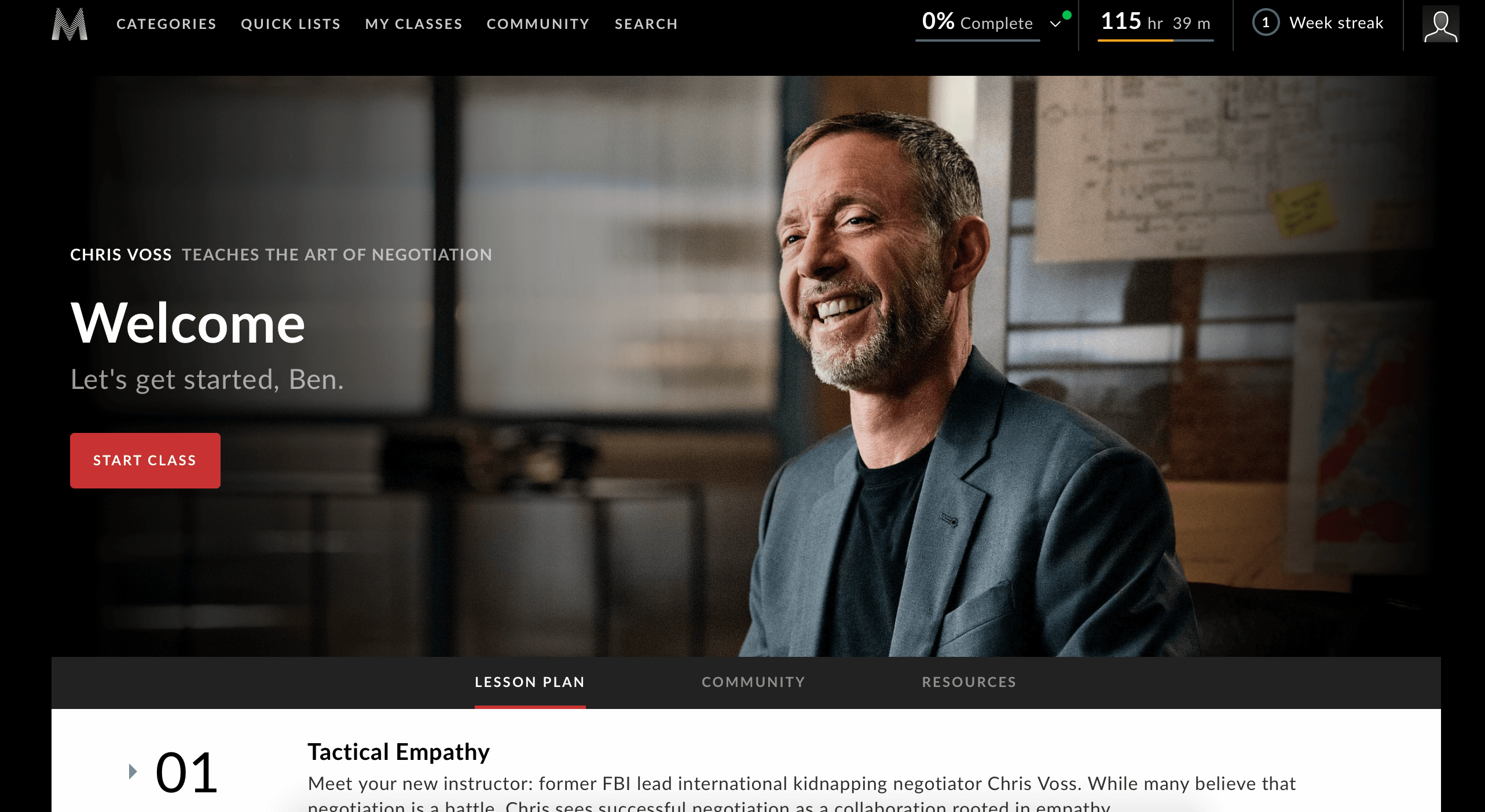
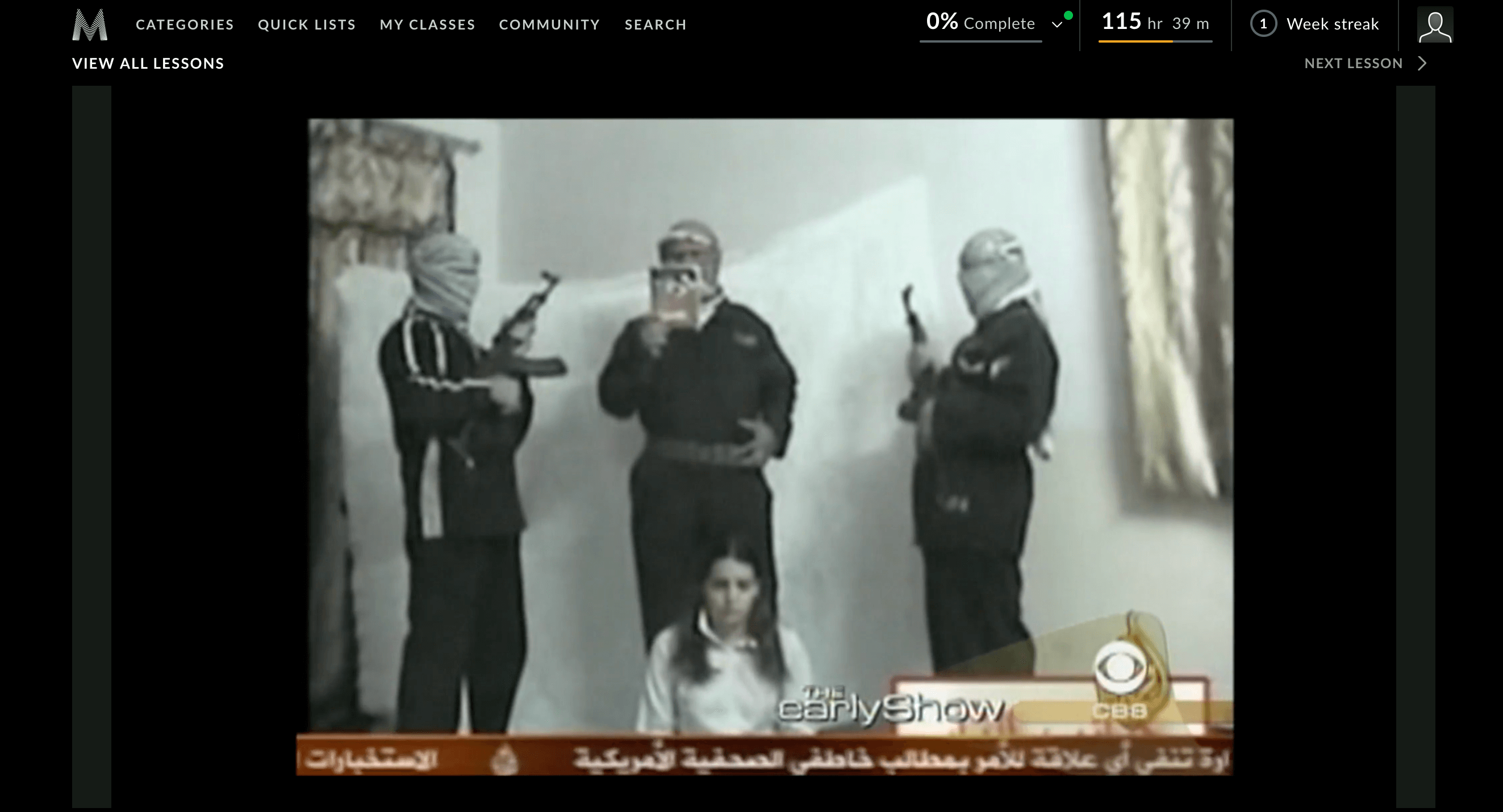
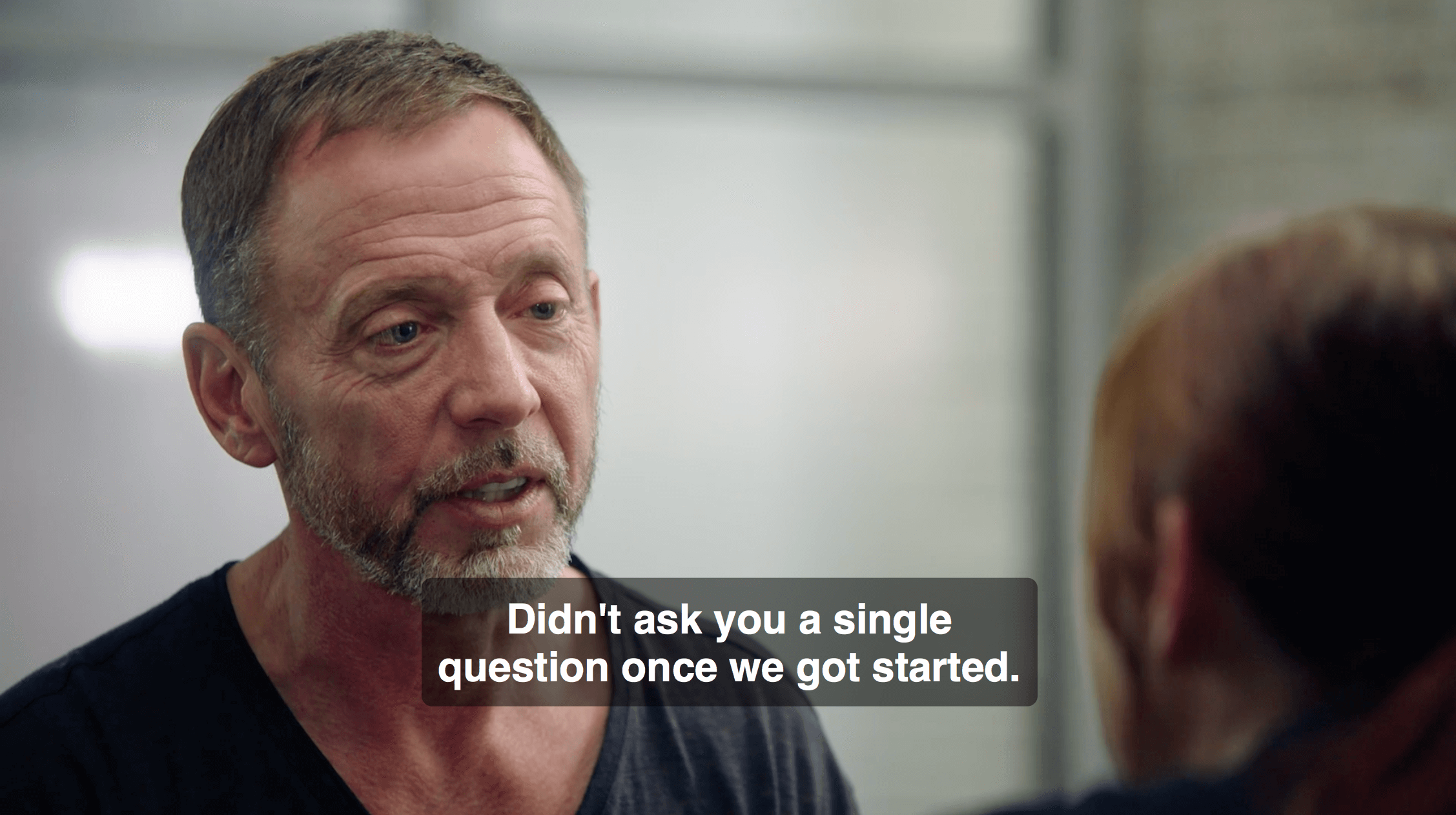
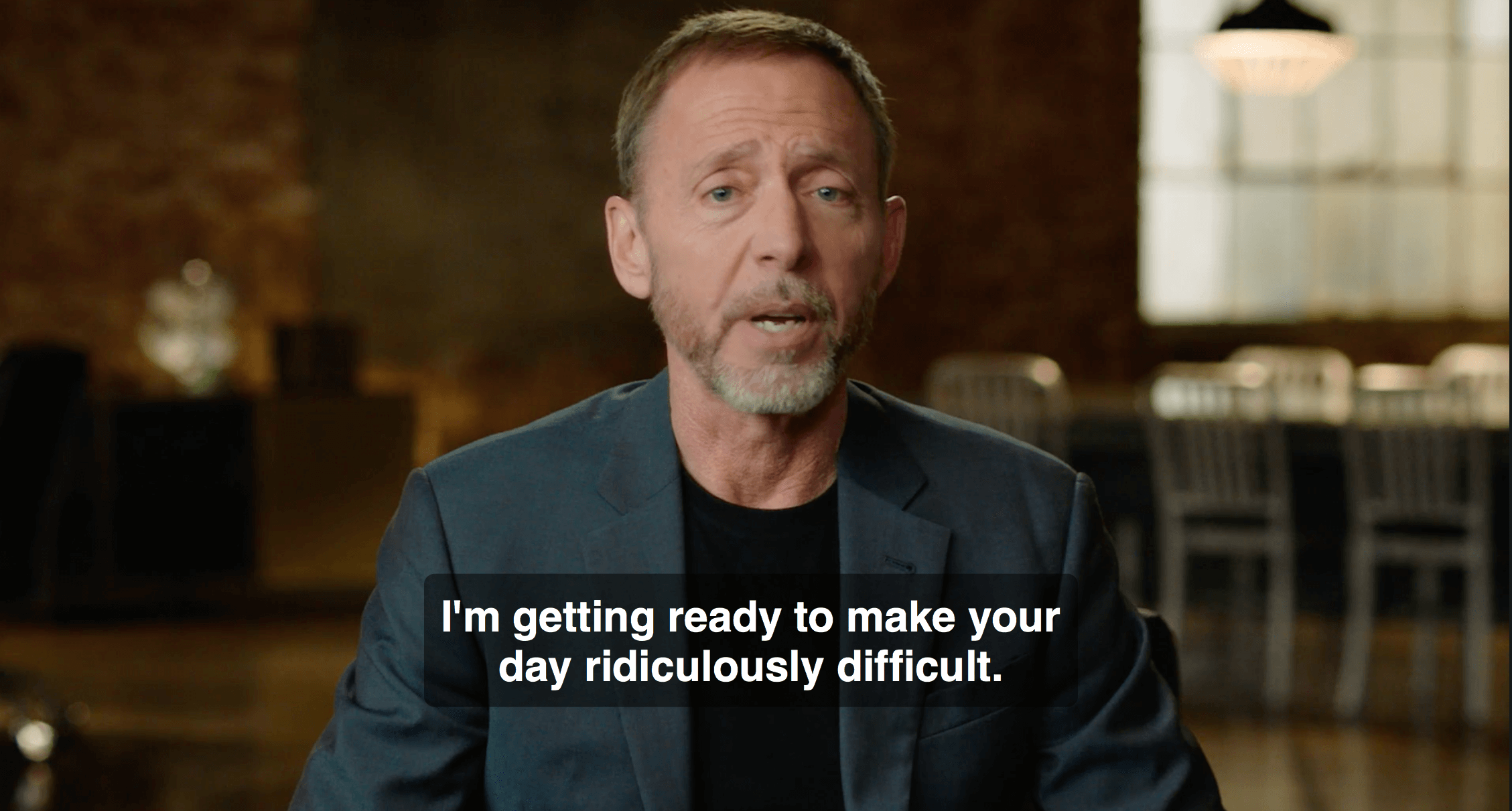
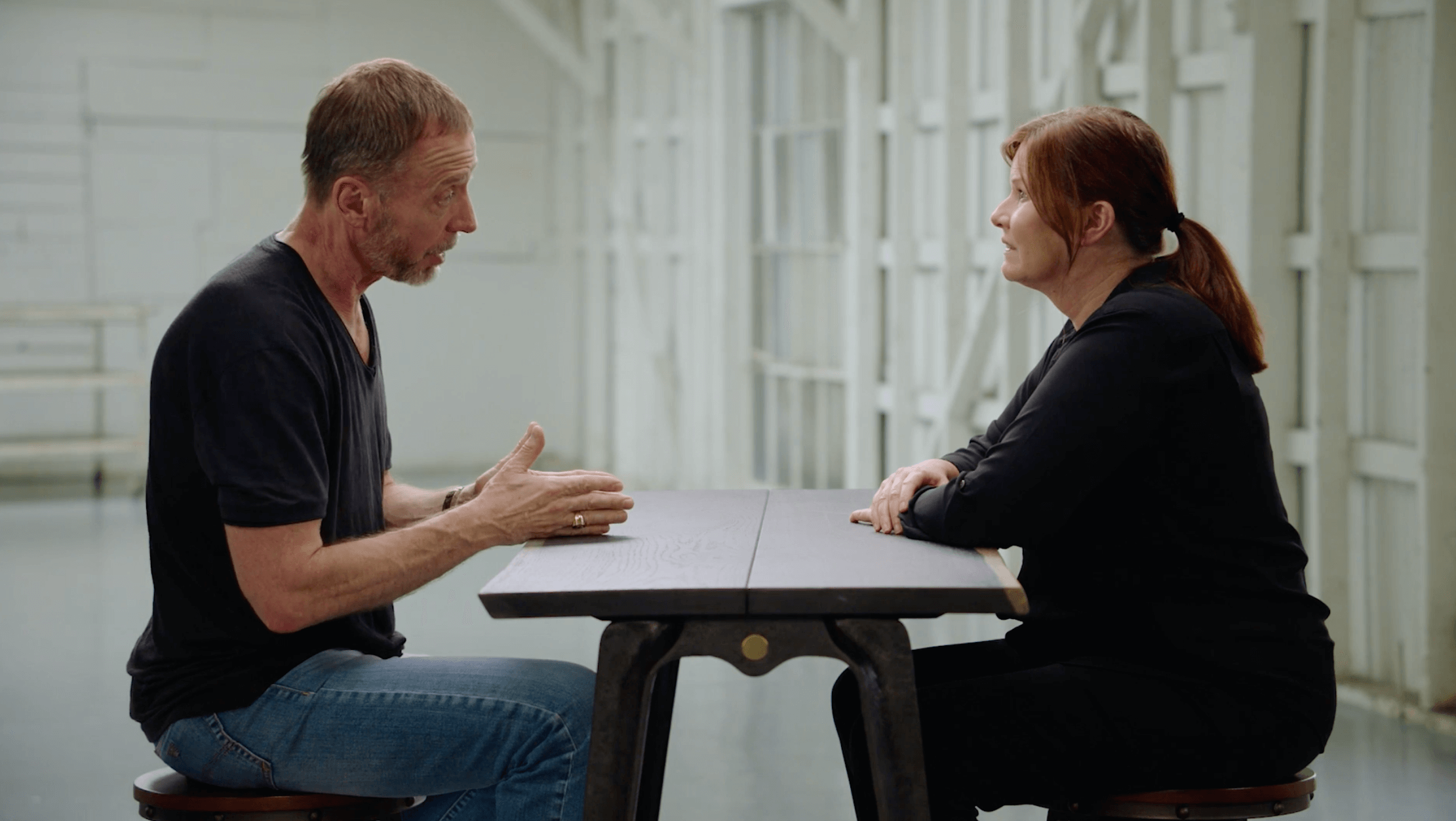
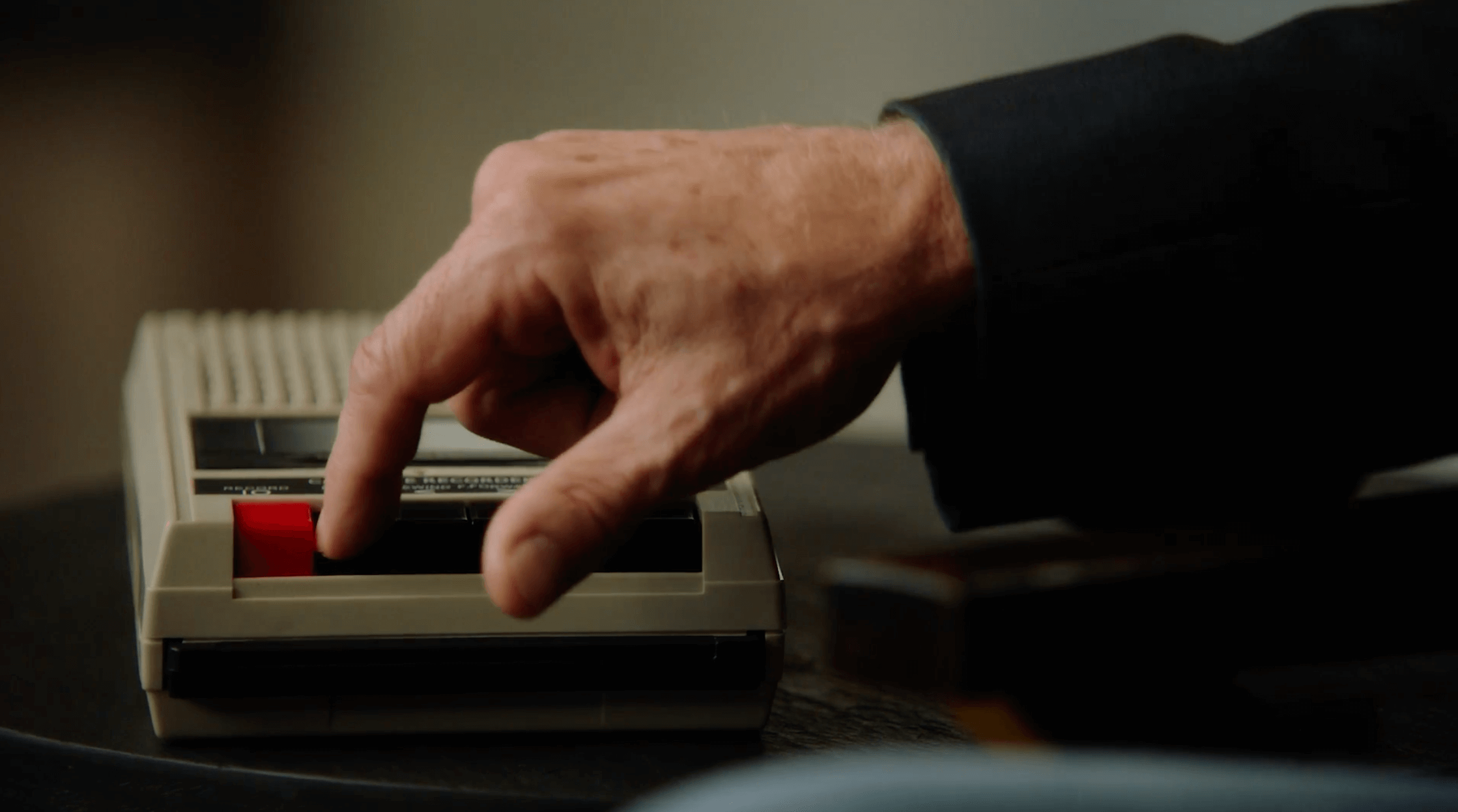
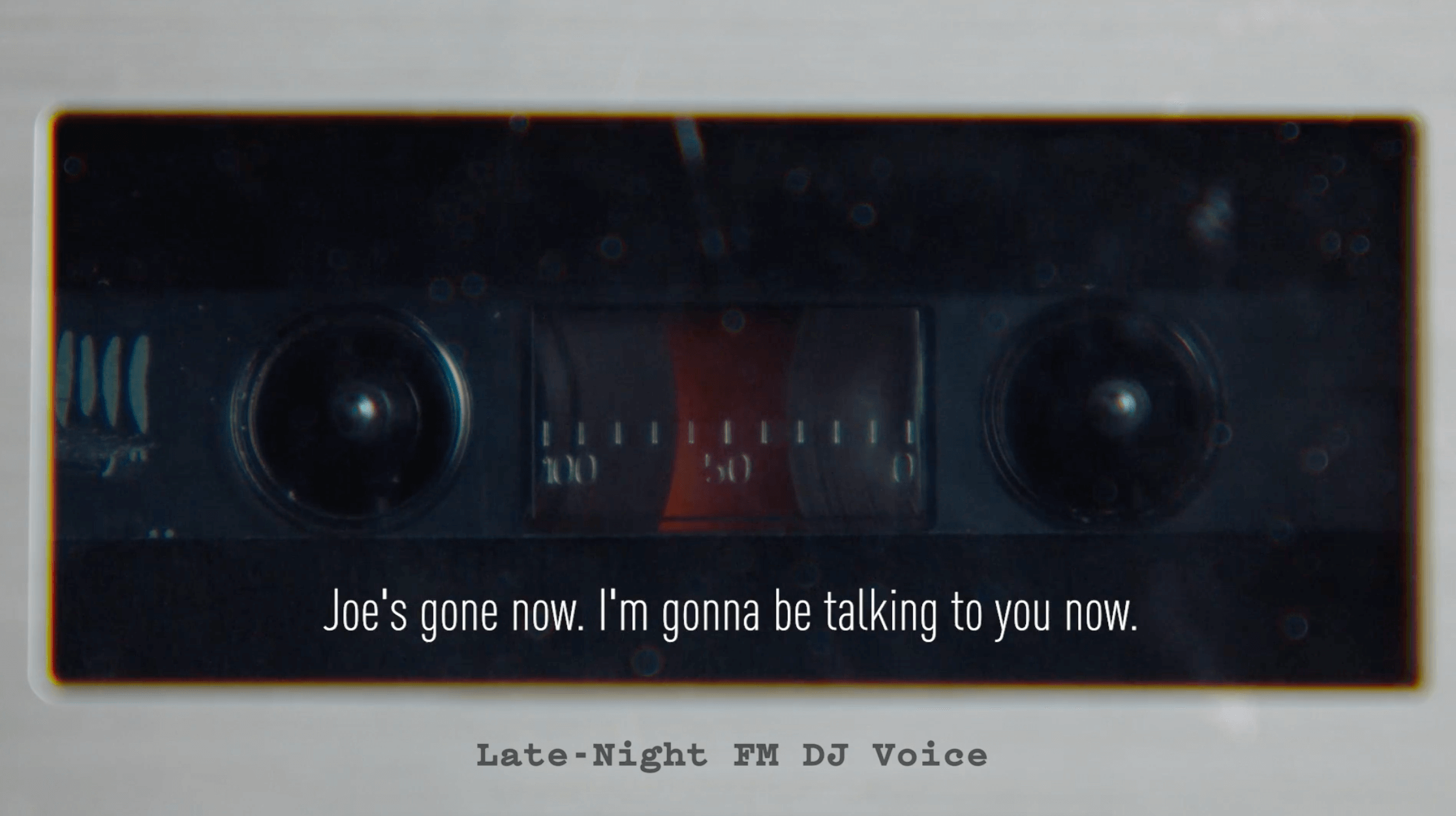
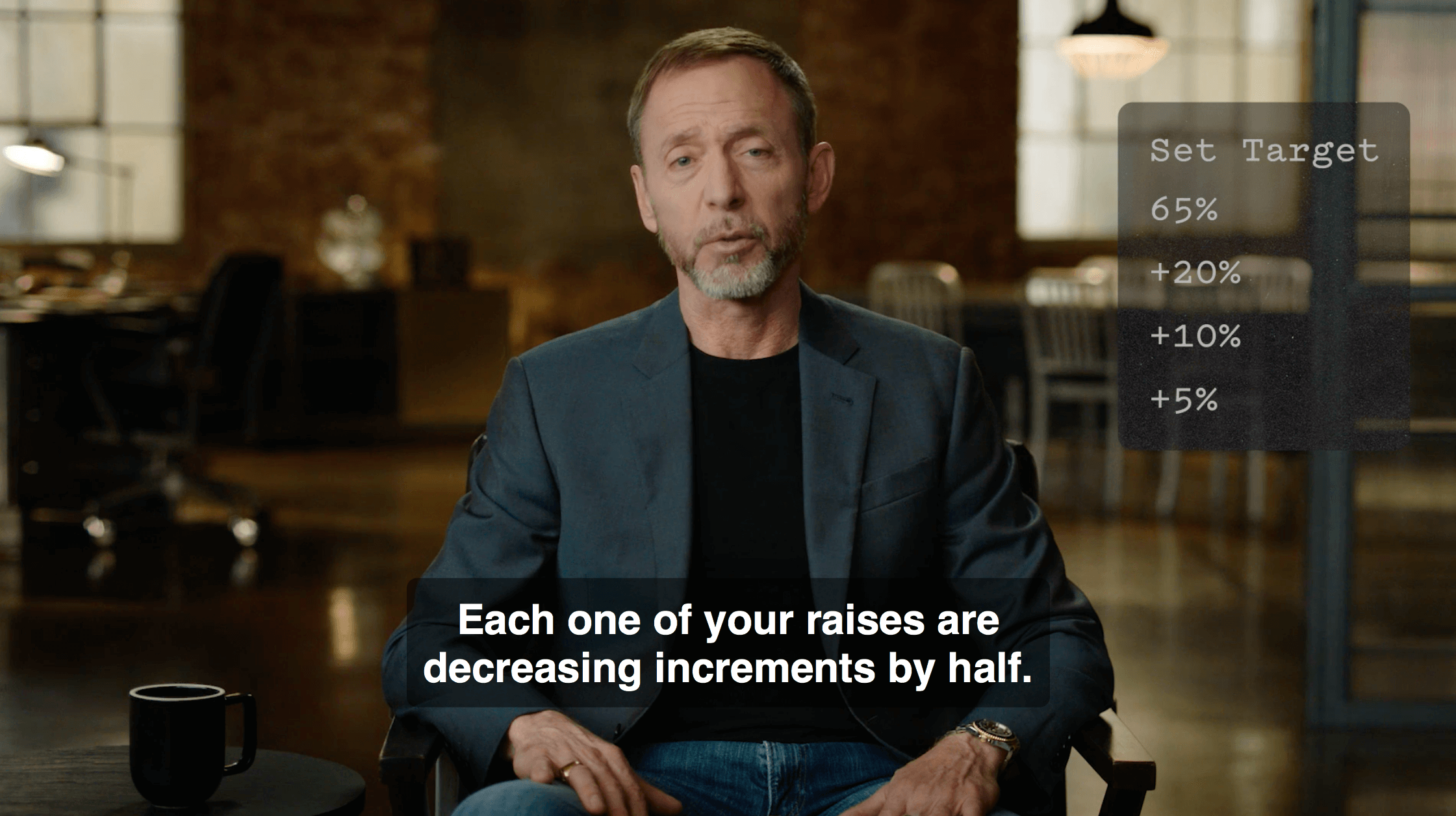
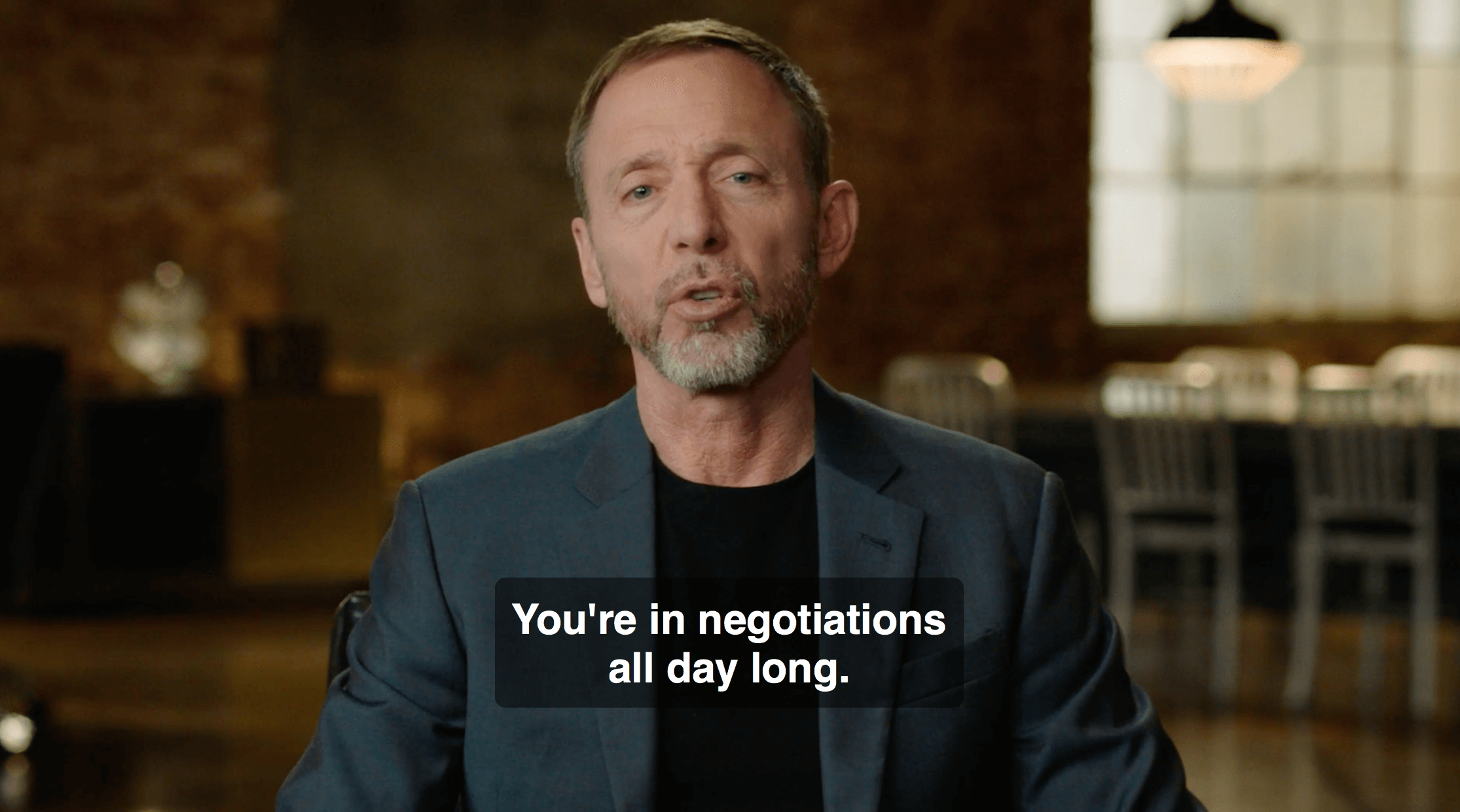
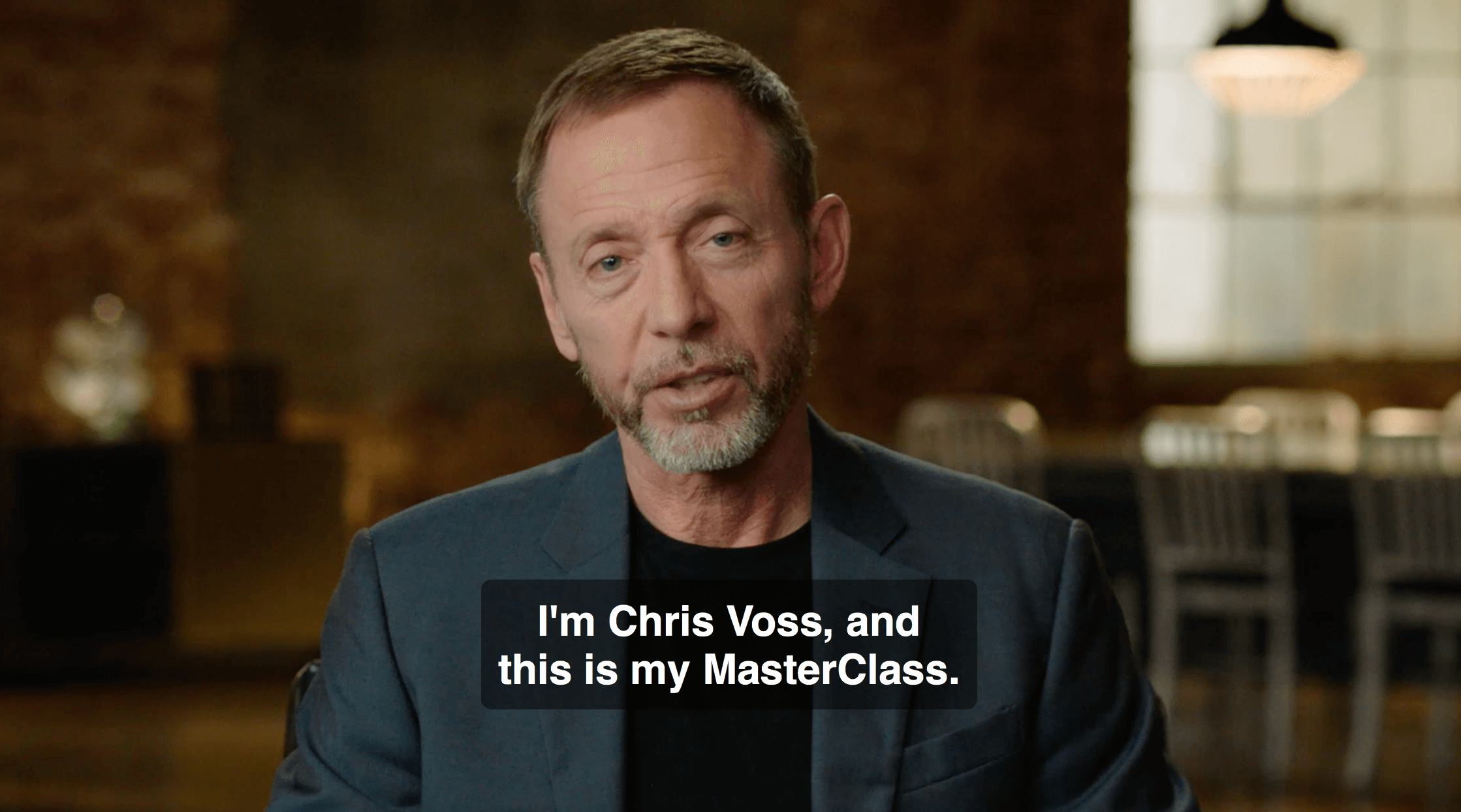
Love your reviews. How would you rank this class in your list of the 41 masterclasses you’ve reviewed? How about the Baldacci class?
Thanks.
Thanks, Stephen. Chris Voss would easily be in the top 5. I need to update that list and put him in. Tremendous class. I’d put Baldacci somewhere in the top 20, really enjoyed that one too and got a lot of value from it.